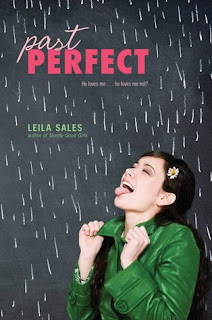How Did Colonial Kids Spend There Leisure Time
how did colonial kids spend there leisure time
For better or worse, these are my people « KidLit History
 Some books are a pretty easy sell for me. A YA romance set in a living history museum? The only shock here is that it was published last fall, and I'm just now getting to it. Leila Sales' Past Perfect is absolutely delightful. Now, it might not be as funny to non-history nerds, but I was laughing hysterically by page 2 and giggling throughout.
Some books are a pretty easy sell for me. A YA romance set in a living history museum? The only shock here is that it was published last fall, and I'm just now getting to it. Leila Sales' Past Perfect is absolutely delightful. Now, it might not be as funny to non-history nerds, but I was laughing hysterically by page 2 and giggling throughout.
One of my favorite parts of my job is the junior historian program. Right now, I have around 30 kids, ages 11 to 18, that are choosing to spend their spare time hanging out with me at the Village. This book is all about the teen junior interpreters, who happen to be at war with the other living history museum across the street. They are colonials, and those other guys are Civil War re-enactors. Of course, there's also forbidden romance, some museum politics, and ice cream. Lots of ice cream.
Chelsea, the main character, doesn't want to admit that she's totally hooked on all of this (she would have rather spent the summer working at the mall, in air conditioning), but history is part of her blood. My favorite parts, obviously, are the parts about working at a museum. I've known tourists (called moderners here-the one part of the book that just felt odd to me) exactly like the ones portrayed. I kept thinking about my kids while I was reading about these fictional kids. To the best of my knowledge, we haven't had any actual romances at the Village, but there have been some crushes. We definitely have some kids that are classic history nerds, some that really just want to dress up and create a character, and some that have been raised in the living history world. But all my kids are there because they want to be, and that's one of the things I liked most about this book–all the characters loved what they did (even if they did it for different reasons), and they were proud of what they did. There was no shame in spending your summer in colonial dress.
There are so many passages I want to share with you, enough that I worry about copyright infringement or something along those lines. But I still have to share a few bits.
From the very beginning, when Chelsea is describing the types of people that work at places like Colonial Essex Village
Type one: history nerds. People who memorized all the battles of the Revolutionary War by age ten; who can, and will, tell you how many casualties were sustained at Bunker Hill; who hotly debate the virtures of bayonets over pistols. They are mostly pale-skinned, reedy, acne-scarred boys in glasses (unless they can't find a pair of historically accurate glasses and are forced to get contacts). I don't know if they were born so unappealing, and turned to history for companionship because they realized they were too grotesque to attract real-life friends or if their love of history came first, and maybe they could have turned out hot, but invested all their energy in watching twelve-hour documentaries about battleships. It's a chicken-or-egg type of question.
Or this, on the top questions from visitors:
1. "Where's the bathroom?"
This is far and away the most common question. You don't actually need any sort of historical knowledge to work at Essex. You just have to know where the nearest toilet is.
And then later, in that same chapter:
These are pretty much the only questions people ask Colonials. If they want you to tell them anything else, just make it up. They will believe you, because you are wearing a costume.
This is not a book that will change your life, but I'm still recommending it to just about everyone I know. It's so rare for history museums to be portrayed in popular culture, much less living history museums. And it's pretty accurate–from the employees and volunteers that are obsessed with historic details to the weird questions visitors ask. I have met, at one time or another, every single character in this book. Of course, they have a much, much larger staff than we do and there are no conversations about budget cuts and declining visitation. But I can live with that–and most teens wouldn't know anything about budgets anyway. It's a book that's funny without being mean–she makes jokes about this crazy world, but they were al jokes we've made before. And though Chelsea does something very damaging to the museum across the street, well, it's the kind of scandal that does happen in the museum world.
The author biography on the back flap mentions that Sales spent some time as an interpreter on Boston's Freedom Trail. It shows, and I think that's part of the reason this book works so well. Sales has been a part of this world, but she can also separate herself enough to find the humor in all of it. Because let's face it: little about my workplace is ordinary.
Bonus: after checking the author's website, I discovered that you can read Past Perfect online for free through the end of February. Go! Enjoy!
Advertisement
0 コメント:
コメントを投稿